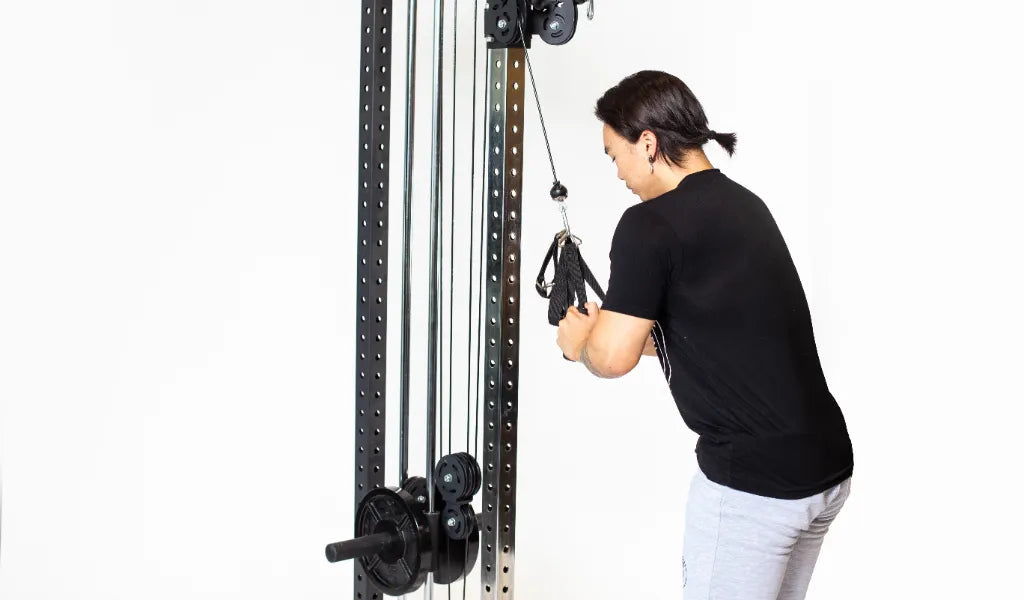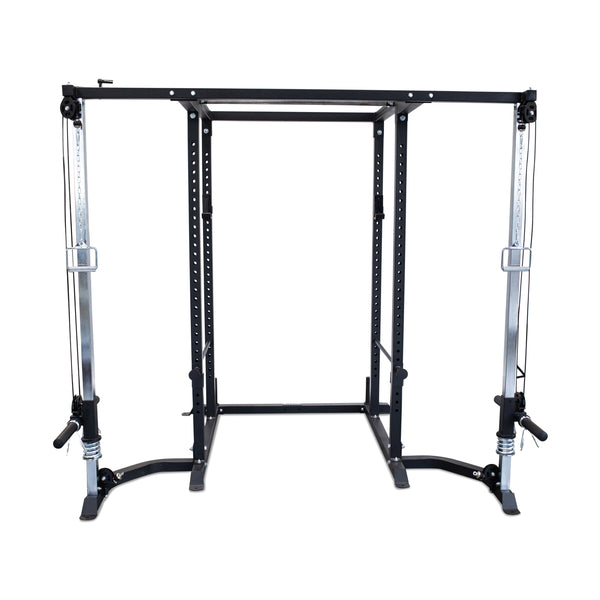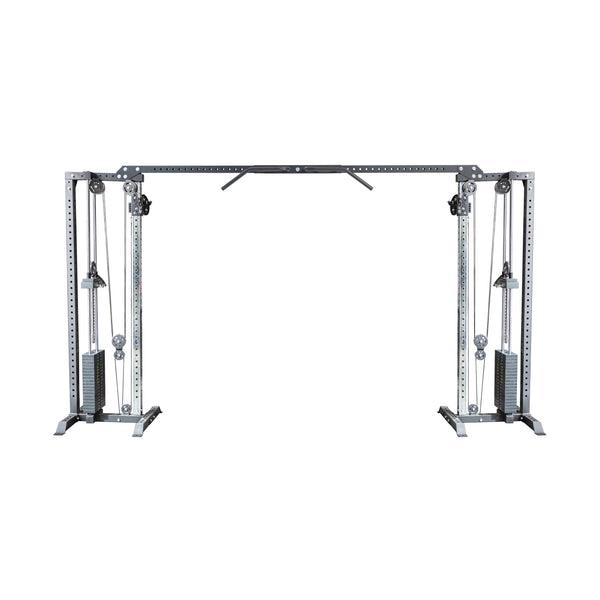If you're looking for a versatile and effective way to train your whole body, you might want to consider adding a cable tower machine to your home gym. A cable tower machine is a machine that uses a cable running through a system of pulleys to lift weights. You can adjust the height of the cable, change the attachment, and choose the resistance level to suit your needs and goals. There’s even a plate-loaded version if you’re strapped for cash. But how do you use a cable tower machine properly?
In this blog post, we'll answer this question and show you some of the benefits and exercises you can do with a cable tower machine. Cable machines have several advantages over free weights, such as:
- They allow you to move in different angles and planes, which can help you target specific muscles or muscle groups, balance out muscle imbalances, heal injured muscles, or enhance your mind-muscle connection.
- They provide a smooth and continuous resistance throughout the range of motion, increasing the time under tension and stimulating muscle growth.
- They are safer and easier to use than free weights, especially for beginners, as you don't have to worry about stabilizing or dropping the weights.
- They offer a wide range of exercise options, from low-intensity mobility drills to high-intensity strength training.
- Adjust the height of the cable according to the exercise you want to do. For example, if you want to do a chest fly, you can set the cable at shoulder level. You can set the cable at the highest level if you want to do a triceps pushdown.
- Choose the cable attachment that suits your exercise. For example, if you want to do a biceps curl, a multi-grip curl bar works well. You can’t go wrong with a lat pulldown bar if you want to do a lat pulldown.
- Select the weight that challenges you but allows you to maintain good form. You can increase or decrease the weight by moving the pin on the weight stack.
- Grip the handle or attachment firmly and pull or push the cable in the direction of your exercise. Keep your core engaged and your posture upright throughout the movement.
- Control the speed and tempo of your reps. Don't let the weight stack slam down or bounce up. Try to keep constant tension on your muscles.
- Perform the desired number of sets and reps for your exercise. Rest as needed between sets.
- Chest fly: Set the cable at shoulder level and attach two handles. Stand between the cables and grab one handle in each hand. Extend your arms to your sides at shoulder level with a slight bend in your elbows. Bring your hands together in front of your chest while squeezing your chest muscles. Return to the starting position and repeat.
- Biceps curl: Set the cable at the lowest level and attach a multi-grip curl bar. Stand facing the cable and grab the bar or rope with an underhand grip. Keep your elbows close to your sides and curl it toward your chest while contracting your biceps. Lower the bar or rope back to the starting position and repeat.
- Triceps pushdown: Set the cable at the highest level and attach a tricep rope extension or tricep ergo grip handle. Stand facing the cable and grab the bar or rope with an overhand grip. Keep your elbows close to your sides and extend your arms down until they are fully straight while contracting your triceps. Bend your elbows back to the starting position and repeat.
- Lat pulldown: Set the cable at the highest level and attach a lat pulldown bar. Sit on a bench or chair facing the cable and grab the bar with an overhand grip wider than shoulder-width apart. Pull the bar toward your chest while keeping your back straight and squeezing your shoulder blades together. Return the bar back to the starting position and repeat.
- Cable row: Set the cable at chest level and attach a double d handle or close grip attachment. Sit on a bench or chair facing the cable and grab the bar or handles with an overhand grip. Keep your back straight and pull the bar or handles toward your abdomen while squeezing your back muscles. Extend your arms back to the starting position and repeat.



